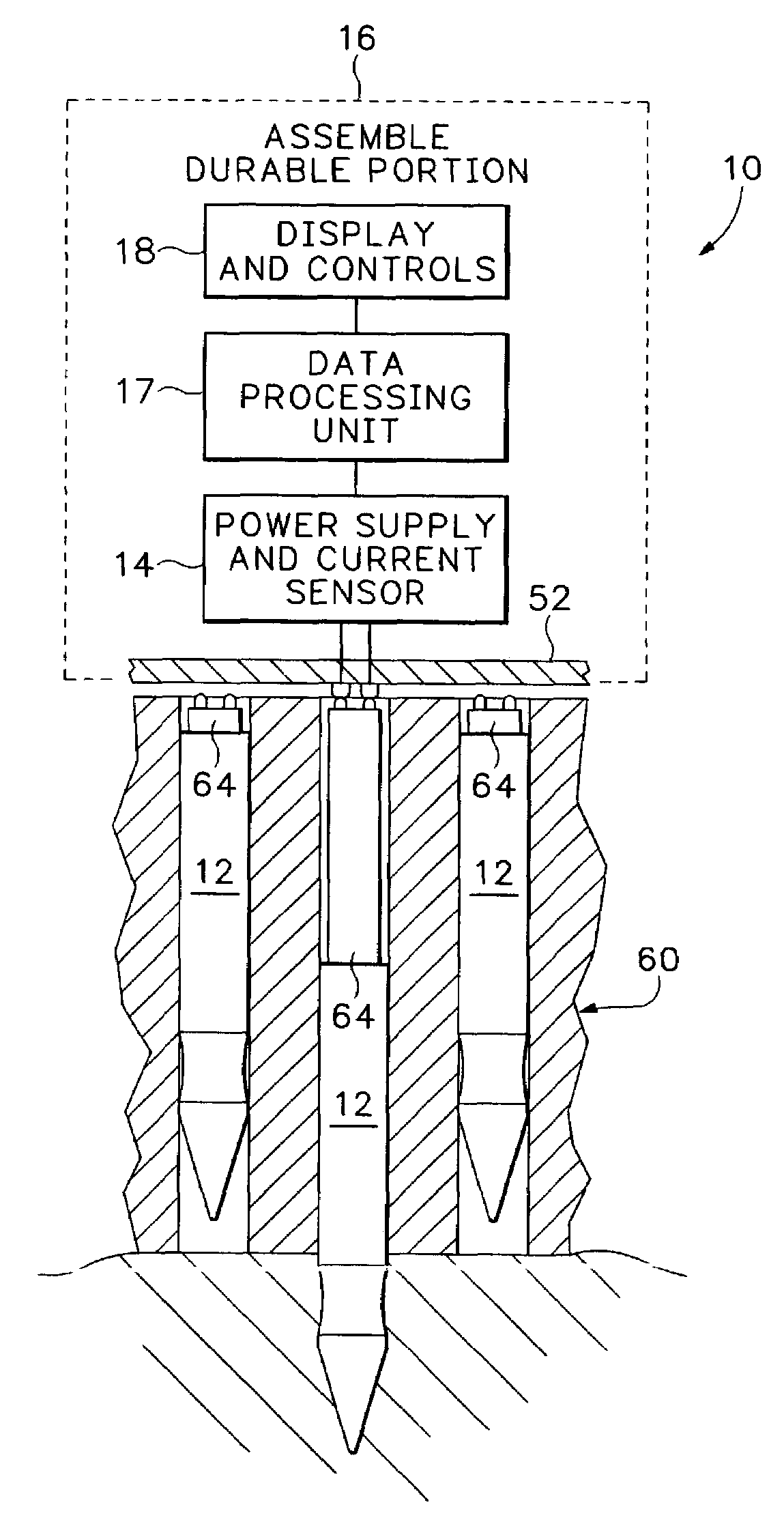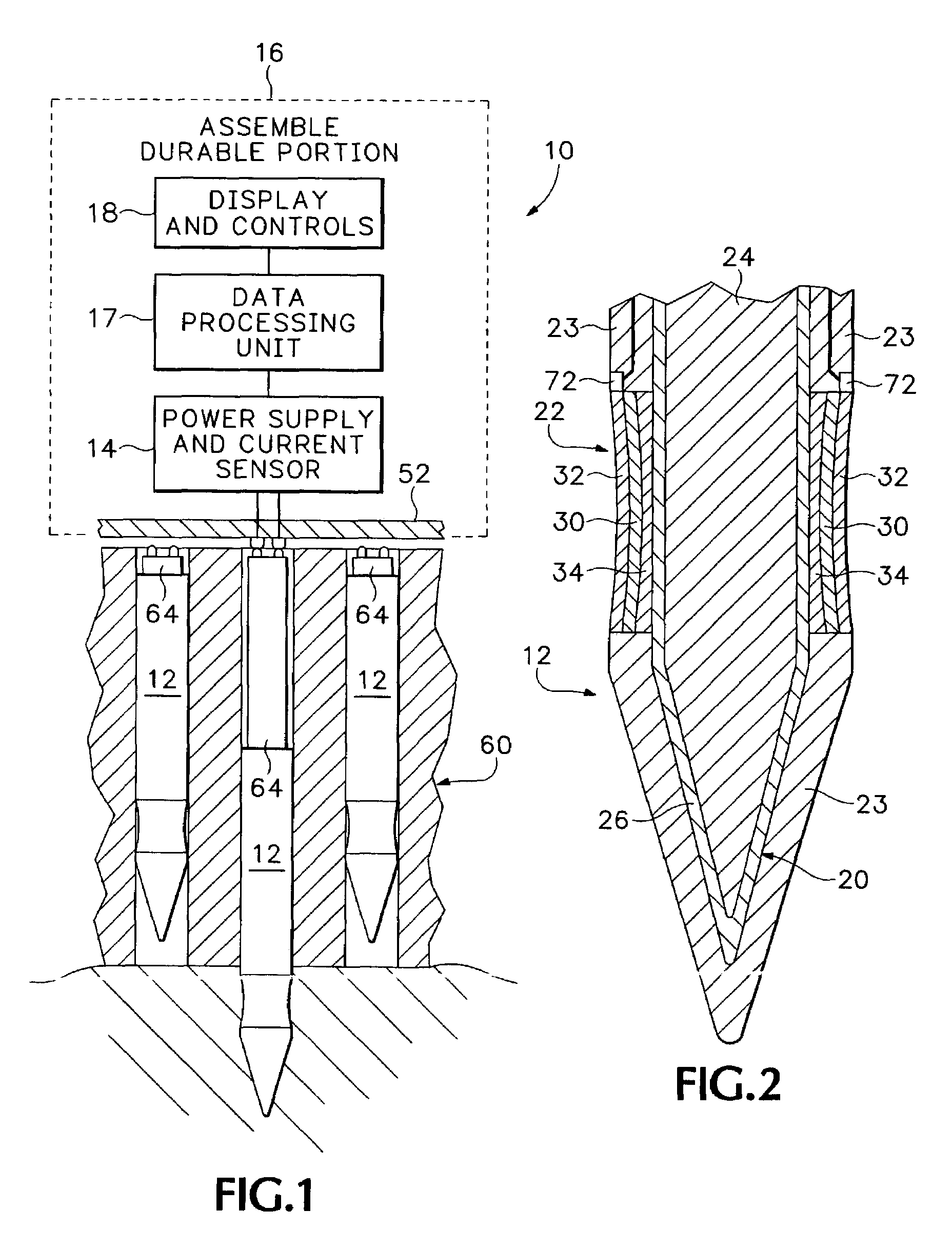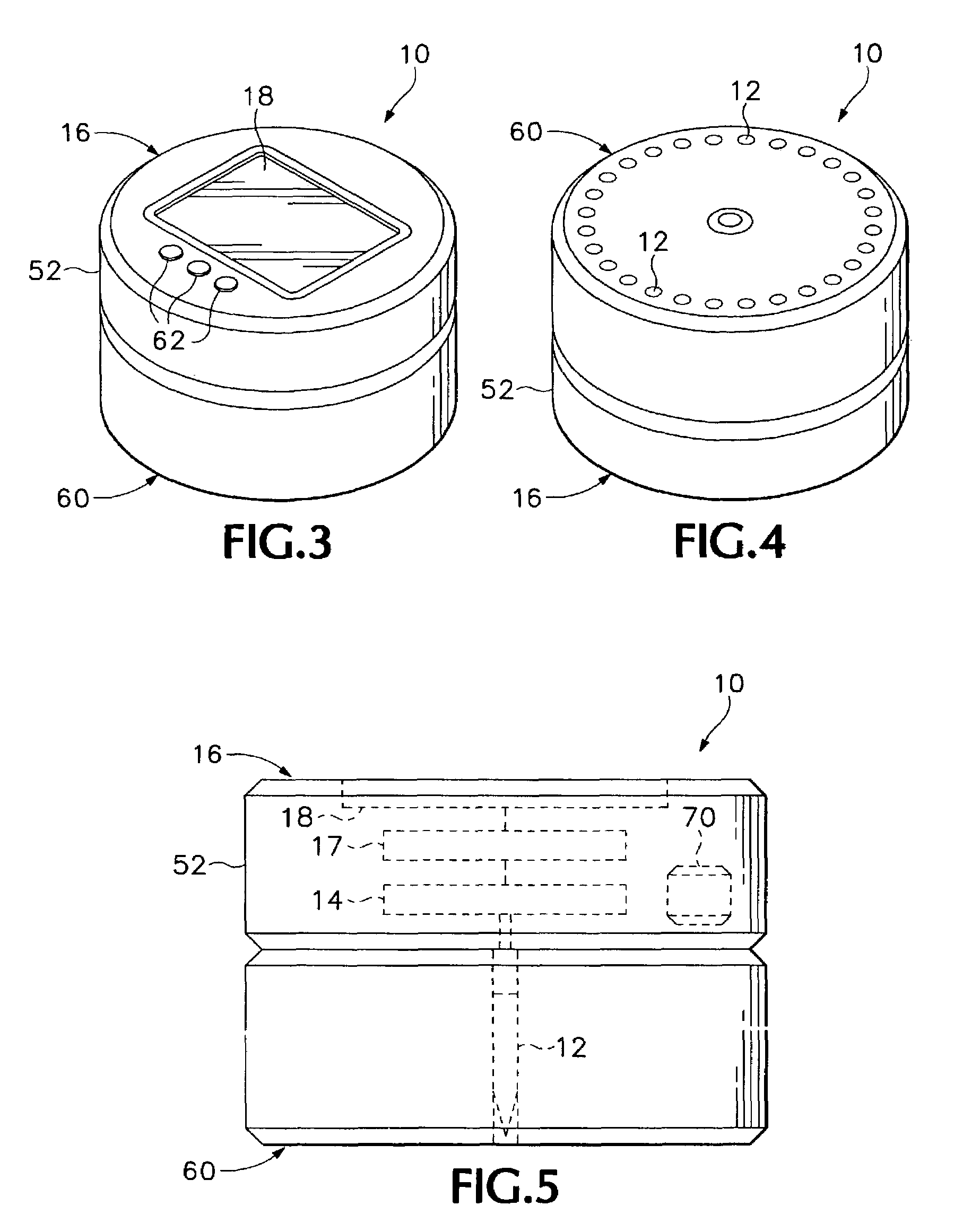Analyte sensor
an analyte sensor and sensor technology, applied in the field of analyte sensors, can solve the problems of inability to measure the blood glucose level of diabetic patients in public places without drawing attention to themselves, maintaining secrecy, etc., and achieve the effect of facilitating the use of analy
- Summary
- Abstract
- Description
- Claims
- Application Information
AI Technical Summary
Benefits of technology
Problems solved by technology
Method used
Image
Examples
Embodiment Construction
[0026]Referring to FIG. 1 a preferred embodiment of the present invention is a glucose sensor assembly 10 having a sensing element 12 that is adapted to be briefly introduced into the soft tissue of a patient. A power supply and current sensor unit 14, which is housed in an assembly durable portion 16, supplies the sensing element 12 with power. Sensing unit 14 quickly (17, measures the magnitude of this current, computes a best estimate glucose concentration (or a “refined analyte measurement”) and sends this information to a controls and display unit 18, which displays this estimate on a small liquid crystal display. Units 14, 17 and 18 may be collectively termed an “electric power, data processing and display device.” It should be noted that although in one preferred embodiment, described above, a fixed voltage is provided and a current is measured, in an alternative preferred embodiment, a fixed current is provided and the voltage across sensing element 14 is measured and is acc...
PUM
| Property | Measurement | Unit |
|---|---|---|
| thick | aaaaa | aaaaa |
| thickness | aaaaa | aaaaa |
| thick | aaaaa | aaaaa |
Abstract
Description
Claims
Application Information
 Login to View More
Login to View More - R&D
- Intellectual Property
- Life Sciences
- Materials
- Tech Scout
- Unparalleled Data Quality
- Higher Quality Content
- 60% Fewer Hallucinations
Browse by: Latest US Patents, China's latest patents, Technical Efficacy Thesaurus, Application Domain, Technology Topic, Popular Technical Reports.
© 2025 PatSnap. All rights reserved.Legal|Privacy policy|Modern Slavery Act Transparency Statement|Sitemap|About US| Contact US: help@patsnap.com



